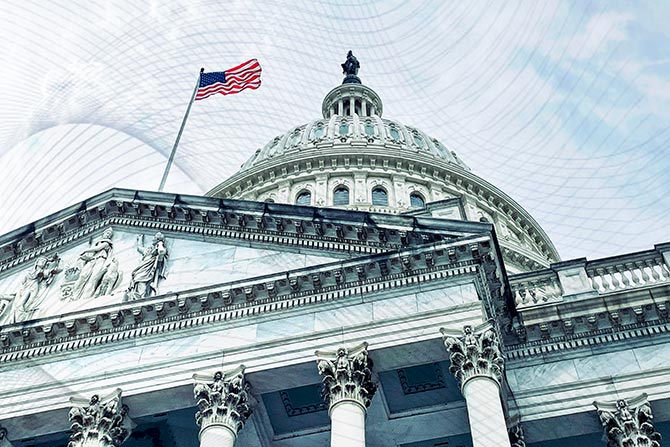In 2010, the Durbin Amendment was dropped into Dodd-Frank in the dead of night, and without so much as a hearing, the government imposed restrictions and price controls on debit cards and connected checking accounts. Bankers warned that mega-retailers would not pass on any savings at the checkout and that bank customers would ultimately foot the bill in lost rewards. Both predictions have proven true, but for reasons clear only to the Federal Reserve, the government is poised to double down on this misguided policy with another 30% cut in debit interchange followed by an automatic biannual adjustment. This “one-way ratchet” will continue to hack away at debit programs every two years based on data and a formula of the Fed’s choosing without public comment.
The Fed is proposing to slash the interchange rate cap from 21 cents to around 14.4 cents — and recent research estimates that this move could reduce interchange revenue for banks by $3 billion annually. That’s essentially the equivalent of the government reaching into banks’ pockets, taking money allocated to ensuring affordable, seamless, secure banking products and services, and handing it over to the very largest retailers.
Retailers will claim that they intend to pass those savings on to consumers. But as we’ve seen in the 13 years since the original Durbin price caps took effect, those promises ring hollow.
That means that the real losers in this fight will be American consumers.
Not only will consumers not gain the advantage of lower prices in stores, but the Fed’s proposed changes to Regulation II will fundamentally affect the economics of what banks do — and that, in turn, affects the products and services they are able to offer their customers and communities.
Banks use interchange revenue to fund free or low-cost checking accounts and other services that consumers value. Prior to the enactment of the Durbin amendment, for example, many banks offered debit card rewards programs — but those programs were eliminated when the revenue streams funding them dried up due to government price controls.
These new proposed cuts to interchange revenue will have an even more dire consequence: They will undermine banks’ efforts to foster financial inclusion by providing access to the free and low-cost transaction accounts that help unbanked Americans get their foot in the door — a first but necessary step to true inclusion.
Our colleagues at the CFE Fund, which oversees the Bank On initiative that ABA has proudly championed, recently wrote to the Fed to emphasize what makes the national account standards work: They were designed to address the needs of low- and moderate-income consumers (bill pay, debit card access, ATM access). They were designed to knock down the barriers that keep so many consumers outside the banking system (minimum balance, credit checks, overdraft fees). And, importantly, they were designed to be economically sustainable for banks offering the accounts.
Interchange fees play an important role in that sustainability equation. If banks do not have the revenue streams to support these and other low-cost accounts, they have two options: Pass the costs on to consumers or stop offering and/or marketing the product altogether.
Bank On accounts are currently offered by a growing list of banks across the country. And to ensure we can continue that momentum, ABA has been working hard on behalf of its members to elevate these concerns to policymakers. But we can’t do it alone — we need your help. With the Fed recently extending the comment deadline to May 12, ABA is calling on all bankers to share how this change in regulation will affect their bank and their customers. You can send a letter easily through ABA’s grassroots platform, SecureAmericanOpportunity.com.
Banks put interchange to work funding low-cost banking services that help consumers find their way into the regulated banking system — enabling them to take advantage of deposit insurance protections, build credit and do so many other things that can only happen with a banking relationship.
If the Fed’s Reg II proposal moves ahead, the very largest retailers will pocket that surplus to pad their bottom line — and consumers won’t see a penny of it.
That’s a tradeoff that leaves our country poorer.
Email Rob at nichols@aba.com.








